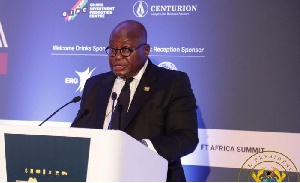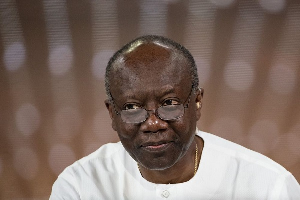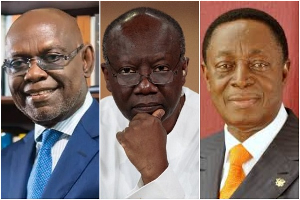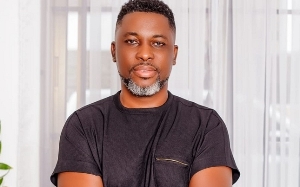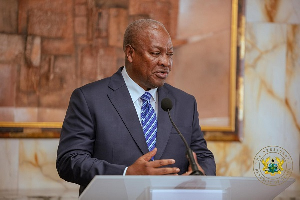Prof. H. Kwesi Prempeh, the Executive-Director of the Center for Democratic Development (CDD), may be smack on point to observe that nepotism is a cultural problem in Ghana that has thoroughly infected general political practice in the country (See “Corruption Watch: Akufo-Addo Leads in Nepotism Chart” Adomonline.com / Ghanaweb.com 11/16/18). Equally problematic, however, is how “nepotism” is defined.
I tend to believe that the most nepotistic leaders in Ghana’s postcolonial history may be Presidents Kwame Nkrumah, who even had a handpicked Nzema kinsman represent the people of Akyem-Abuakwa in Ghana’s Parliament; Jerry John Rawlings and John Agyekum-Kufuor, not necessarily in the order in which their names appear.
I predicate my observation and opinion more on the duration that these afore-listed Ghanaian leaders had at the helm of the country’s affairs than on any scientific evidence derived from any readily available verifiable statistics.
I also vehemently disagree with those who claim that our country’s present President, Nana Addo Dankwa Akufo-Addo, is the one Ghanaian leader who is most nepotistic in the selection of his political appointees. A casual look at the profiles of his appointees would readily bear out the fact that the overwhelming majority of the key actors of his New Patriotic Party-sponsored administration, at all levels of government and governance, are people of Asante descent. I designate the category of “Asante” as all key players and/or actors in the Akufo-Addo government who were born and/or raised in the Asante Region. On the other hand, nepotism could be functionally and aptly defined on the basis of the percentage of Akan-descended Ghanaian citizens who are presently serving in the Akufo-Addo Administration. The latter category, however, may be extremely hard to decide, being that, to varying degrees of percentages, at least on one side of the family, roughly 70-to-80-percent of all Ghanaian citizens may have at least one Akan parent and/or blood relative. Under the preceding circumstances, nepotism can be extremely hard to prove.
Still, by and large, most Ghanaians fully appreciate the patently unsavory practice of nepotism when they are confronted with the same. In Ghana, such determination is invariably predicated on the number or percentage of cabinet appointees who are known to have some direct consanguineal links with the President or Head-of-Sate of the country at any particular moment. And by the way, I forgot to remark on the fact that former President John Agyekum-Kufuor’s cabinet was widely known to have been composed of ethnic Asantes in ways that far exceeded the number and/or percentage of Akyem-descended actors and/or players in the present Akufo-Addo Administration. In this context, thus, Nana Akufo-Addo could aptly be described as more of an “Asante-phile” than could be said of former President Agyekum-Kufuor, who was widely known to have fielded only three Akyem-descended Ghanaian citizens, one each, from the three traditional Akyem States, namely, Abuakwa, Kotoku and Bosome.
Indeed, a major Ghanaian traditional ruler who, by the way, also happened to be my relative, was incessant in his backdoor complaints to yours truly that a critical look at the profiles of Mr. Kufuor’s cabinet appointees gave the inescapably erroneous impression that the overwhelming majority of Ghanaian citizens were of Asante ethnicity.
My prominent relative was convinced that if then-President Kufuor’s cabinet and other executive appointments were strictly based on merit, rather than geo-cultural and/or geo-ethnic kinship, there would have had to be more Fantes, Akyems and Akuapems at the helm of affairs in the Kufuor government than Asantes, the ethno-kinship group of which the extant President was personally and publicly associated.
And by “merit,” of course, my prominent and very influential relative meant the level of schooling or academic attainment. The latter argument is quite interesting because it was on the same premise that my very prominent relative predicated his opinion of what constituted fairness in the selection of political appointees.
In his time, President Nkrumah was also virulently accused of having jampacked his government, not necessarily his cabinet, with Akans of Nzema and Fante ethnic affiliation. The case, back then, could readily be made that Akans of Fante sub-ethnicity tended to be more Western-educated than the rest of the general Ghanaian population. Administrative efficiency or competence was a different ballgame altogether.
But, of course, under the protracted 20-year tenure of Chairman Jerry John Rawlings, absolutely nobody needed convincing that ethnic Ewes, and Anlo-Ewes in particular, were nauseatingly overrepresented in both Rawlings-led tandem regimes of the Provisional National Defense Council (PNDC), and later the National Democratic Congress (NDC).
The basic Akyem argument and riposte to the very annoying question of whether Nana Akufo-Addo is as guilty of nepotism as the other Ghanaian leaders, is invariably pointedly rejected in the following terms: “Show me a list of cabinet and other executive appointees under the governments of Presidents Nkrumah, Rawlings, Atta-Mills and Mahama, and I would show you how and why President Akufo-Addo’s appointments of Akyems and Akuapems into his cabinet was unimpeachably remedial.
Of course, the short-lived regimes of Drs. KA Busia and HB Limann also had their widely perceived shortcomings, as was also the 6-year junta tenure of the Ignatius Kutu Acheampong-led National Redemption Council (NRC), and later the Supreme Military Council (SMC-I). Then, of course, there was the equally short-lived palace coup-engineered year-old Supreme Military Council (SMC-II) junta that was led by Gen. FWK Akuffo.
*Visit my blog at: kwameokoampaahoofe.wordpress.com Ghanaffairs
By Kwame Okoampa-Ahoofe, Jr., PhD
English Department, SUNY-Nassau
Garden City, New York
E-mail: okoampaahoofe@optimum.net
Opinions of Saturday, 24 November 2018
Columnist: Kwame Okoampa-Ahoofe, Jr., PhD

